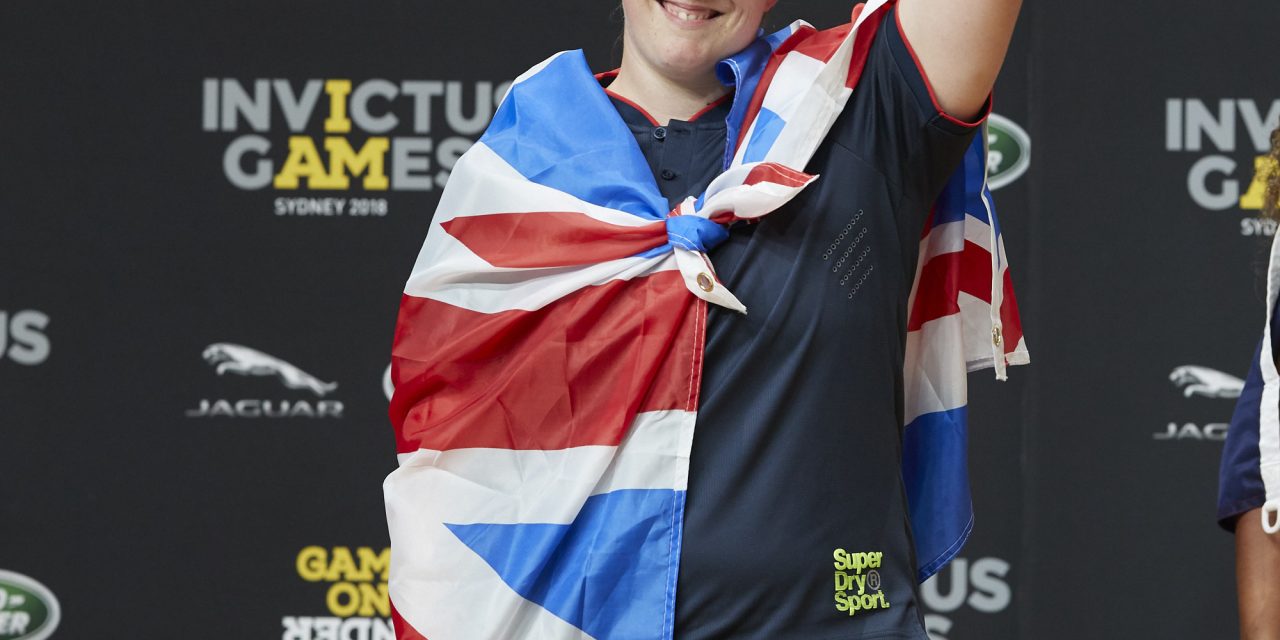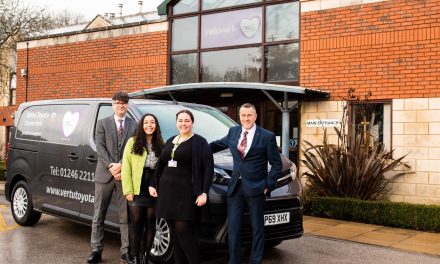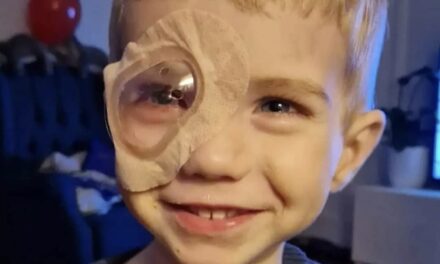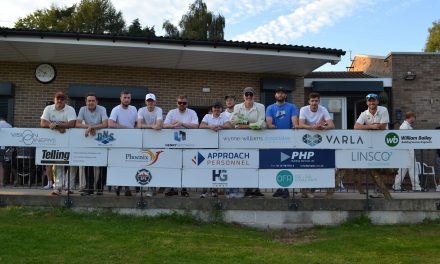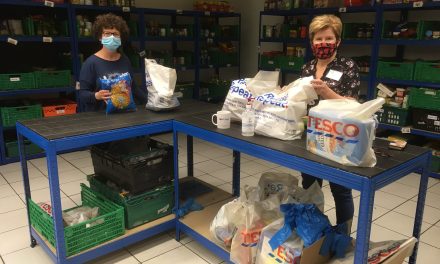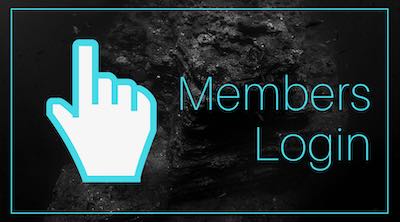Wounded veteran, Rachel Williamson of Rutland, who has used exercise to overcome her own mental health challenges since being medically discharged from the RAF due to an injury, is urging others to step up to raise vital funds for wounded and sick veterans.
Former RAF Senior Aircraftsman, Rachel, 31, reveals that accepting the life changing nature of her injury has been the biggest step she’s ever had to take in her recovery – as she encourages people across the UK to step up to help injured veterans like her get the support they need.
She hopes to motivate people to sign up to Help for Heroes’ new challenge, Step 2 It, to do up to 10,000 steps a day and, in so doing, experience the benefits that exercise has given her in boosting her mental wellbeing
Rachel’s military career came to an end when what initially appeared to be a minor injury eventually caused her to lose the use of her right arm. The consequences on both her physical and mental health were severe but, with support, Rachel has found new focus and is now taking steps towards a brighter future.
She says, “I was at my lowest point in early 2018, a dark place, and I hated myself. I also had to learn how to do everything again, such as writing for example. And I had to learn to ask for and accept help”.
Through Help for Heroes’ Sports Recovery programme. Rachel regained the confidence her injury had taken away from her and joined the Invictus UK programme. At the 2018 games she won two gold medals, three silvers and one bronze. She will be the first female captain of Team UK at the rescheduled 2021 Invictus Games in The Hague.
For those taking part in Step 2 It she adds, “I had to convince myself again that sports are really enjoyable and good for you. Now I am the person I used to be. Thanks to you, people like me are able to get the support that we need.”
Research* carried out by Help for Heroes among wounded, injured and sick veterans, serving personnel and families reveals that 56% of this group are doing less exercise than normal since the COVID-19 pandemic began, with 39% saying that they don’t feel motivated to exercise. This is despite the fact that 65% of respondents find exercise is something they can use to manage stress and anxiety. Other reasons given for not exercising as much include having to self-isolate (29%), worries over catching the coronavirus (13%), having no/less free time (10%) and having to look after children/partner at home (10%).
Step 2 It asks participants to sign up at Step2It.helpforheroes.org.uk and do 10,000 steps a day (or a distance of their choice) for 30 days, getting sponsors to support their challenge. With the majority of its fundraising events being cancelled due to the coronavirus pandemic, Help for Heroes hopes that Step 2 It will start plugging its fundraising deficit while giving people an opportunity to get fit in a fun way.
Hannah Lawton, Sports Recovery Manager at Help for Heroes, says,” Sport and exercise are massively important for many of the sick and wounded veterans that we support. Not just to help their physical wellbeing but to improve mental health. It can be a great way to re-motivate yourself after injury or illness and help you realise you can still do the things you love.”
Over the past few months, many people have found solace in exercising and keeping fit. But like many of our veterans, there are also those who have felt demotivated because of concerns and worries caused by the coronavirus, even though we all know that exercise makes us feel better. Our hope is that Step 2 It will give anyone and everyone across the UK a goal to work to – either to motivate them to get back into exercise, or a reason to keep up new habits formed. By taking this big step for themselves, they won’t just be helping veterans like Cornelia, Rob, Rachel and John, but will be doing themselves a favour too.”
*About the Help for Heroes Research: * Based on 312 responses to a survey carried out by Help for Heroes in May 2020 of wounded, injured and sick veterans, serving personnel and families who answered questions around the amount of exercise they had undertaken since the COVID-19 pandemic began to understand how their support needs may have changed.



